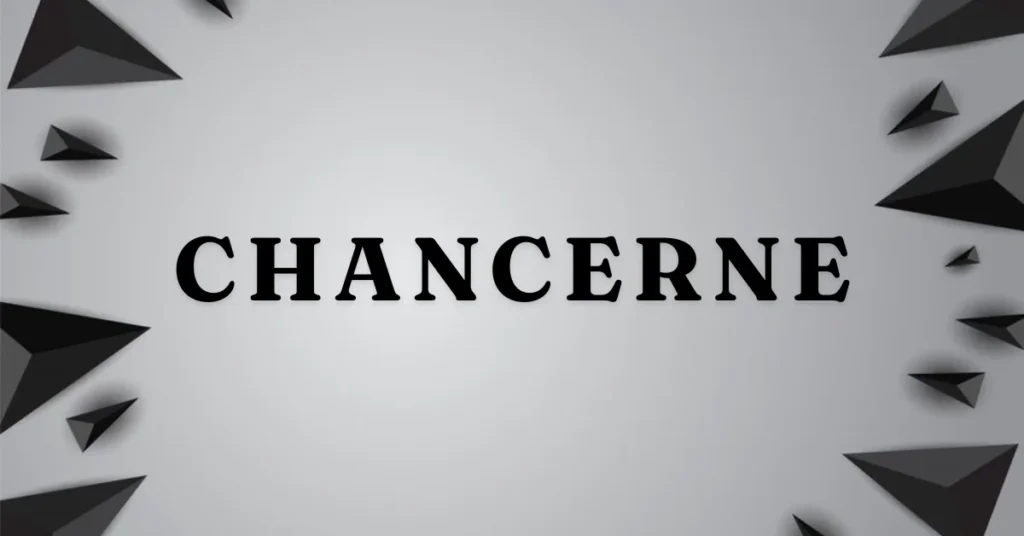Introduction to Chancerne and its meaning
Welcome to the future of work: Chancerne. A term that might sound unfamiliar now, but one that is quickly reshaping how we view employment and career paths. As technology advances and the workforce evolves, traditional models are giving way to a more flexible and dynamic approach – enter Chancerne. Let’s explore this exciting concept, its advantages, challenges, and what it means for the way we work in today’s ever-changing landscape.
The Traditional Work Model vs. Chancerne
In the traditional work model, employees typically work fixed hours in a physical office under direct supervision. This rigid structure often limits flexibility and autonomy.
On the other hand, Chancerne embraces a more fluid approach to work, allowing individuals to choose when and where they work best. This flexibility promotes better work-life balance and can lead to increased productivity.
While traditional workplaces may focus on hierarchy and set roles, Chancerne encourages collaboration and innovation through diverse projects. Employees have the opportunity to explore different avenues of interest and develop new skills.
In today’s fast-paced world, many are recognizing the benefits of adopting a Chancerne model. By embracing change and adapting to this evolving concept of work, organizations can stay ahead in an ever-changing landscape.
Why Chancerne is Gaining Popularity
In today’s rapidly changing work landscape, the traditional 9-5 office model is no longer the only option. More and more people are seeking flexibility, autonomy, and a better work-life balance. Enter Chancerne – a new way of working that is gaining popularity for its innovative approach.
Chancerne allows individuals to take control of their careers by freelancing or taking on short-term projects. This model offers freedom from rigid schedules and provides opportunities to explore diverse roles in various industries. With advancements in technology enabling remote work, Chancerne has become a viable choice for those looking to break free from the constraints of traditional employment.
Moreover, Chancerne fosters creativity and self-motivation among workers who thrive in dynamic environments. It encourages continuous learning and skill development as individuals navigate different projects and collaborations. By embracing this flexible work style, professionals can expand their networks and gain valuable experiences across multiple disciplines.
As the gig economy continues to grow, more companies are recognizing the benefits of incorporating Chancerne into their business models. By tapping into a pool of talented freelancers with specialized skills, organizations can adapt quickly to market demands and stay competitive in today’s fast-paced world. The rise of platforms connecting businesses with independent contractors has made it easier than ever to leverage external talent on-demand.
The shift towards Chancerne reflects a broader cultural movement towards individual empowerment and diversity in the workplace. As this trend gains momentum, we can expect to see more professionals choosing autonomy over tradition and redefining what success looks like in their careers.
Advantages of a Chancerne Work Model
Embracing the Chancerne work model comes with a host of advantages that cater to the evolving needs and preferences of modern workers. One significant advantage is the flexibility it offers, allowing individuals to choose when and where they work best. This autonomy can lead to increased productivity and job satisfaction as employees feel empowered to manage their own schedules.
Moreover, Chancerne promotes a diverse range of projects and opportunities for professionals to explore new skills and interests. By engaging in multiple projects simultaneously or consecutively, workers can diversify their experience and build a versatile skill set.
Additionally, this model encourages collaboration between freelancers, contractors, and traditional employees, fostering a dynamic work environment rich in creativity and innovation. The ability to assemble teams based on specific project requirements ensures that companies can access top talent regardless of geographic location.
Furthermore, the Chancerne approach enables organizations to adapt quickly to changing market demands by scaling resources up or down as needed. This agility allows businesses to stay competitive in rapidly evolving industries while maintaining cost-efficiency.
Challenges and Criticisms of Chancerne
Embracing the Chancerne work model comes with its fair share of challenges and criticisms. One primary concern is the potential lack of stability that freelancers may experience compared to traditional full-time employees. Without a consistent salary or benefits, uncertainty about income can be daunting for some individuals.
Additionally, there are concerns about isolation and limited opportunities for collaboration in a chancerne setup. Working independently can lead to feelings of loneliness and disconnect from a team environment. Building relationships with colleagues and fostering creativity through teamwork may prove challenging in this setting.
Furthermore, issues related to job security and protection arise when working as a freelancer. Freelancers often lack access to certain legal protections afforded to full-time employees, such as healthcare benefits or unemployment insurance. This vulnerability can add stress and instability to an already unpredictable work situation.
Despite these challenges, many believe that with proper support systems in place, the chancerne model can thrive while addressing these criticisms head-on. It’s essential for businesses and policymakers alike to find ways to mitigate these concerns effectively without stifling the flexibility and innovation that chancerne offers in today’s evolving workplace landscape.
Implementing Chancerne in the Modern Workplace
As the concept of Chancerne continues to gain traction in today’s fast-paced work environment, many organizations are exploring ways to implement this innovative model into their operations. Embracing flexibility and autonomy, Chancerne encourages a more fluid approach to how work is done.
Incorporating Chancerne into the modern workplace involves reimagining traditional structures and hierarchies. By allowing employees to take on projects based on their skills and interests, companies can tap into diverse talents within their workforce. This not only boosts creativity but also fosters a sense of ownership among team members.
To successfully implement Chancerne, clear communication channels are crucial. Providing transparency regarding project opportunities, deadlines, and expectations empowers individuals to make informed decisions about where they can contribute most effectively. Additionally, offering support and resources for skill development ensures that employees are equipped to excel in their chosen projects.
The Future of Work: Predictions for the Rise of Chancerne
As we look ahead to the future of work, one thing is becoming increasingly clear – the rise of Chancerne is on the horizon. With technological advancements and shifting attitudes towards work-life balance, more and more individuals are embracing this flexible way of working.
The traditional 9-5 office model is slowly giving way to a more dynamic approach where professionals have the freedom to choose when, where, and how they work. This shift towards Chancernes allows for greater autonomy and independence in managing one’s workload while also increasing productivity and job satisfaction.
Companies are recognizing the benefits of implementing Chancernes within their organizations. By offering flexibility and trust to employees, businesses can attract top talent from around the globe and foster a culture of innovation and creativity.
As we move forward into this new era of work, it will be essential for both employers and employees to adapt to this changing landscape. Embracing Chancerne means embracing change, but it also presents exciting opportunities for growth, collaboration, and success in the evolving world of work.
Conclusion: Embracing Change and Adapting to the
Chancerne is not just a passing trend; it represents a shift in how we view work and productivity. As the world continues to evolve, so must our approach to work. Embracing Chancerne means embracing change and adapting to the ever-changing landscape of the modern workplace.
By understanding the meaning of Chancerne,s recognizing its advantages, addressing its challenges, and implementing it effectively, businesses can stay ahead of the curve. The future of work is unpredictable, but one thing is certain: those who are willing to embrace flexibility, autonomy, and innovation will thrive in this new era.
So let’s welcome Chancernes with open arms and be ready to adapt to whatever changes come our way. It’s time to redefine work as we know it and create a more dynamic and fulfilling environment for all. Are you ready for the evolution of work?
FAQs
What is “Chancerne”?
Chancerne is a pioneering approach to workspaces designed to offer unprecedented flexibility, collaboration, and inclusivity. It allows individuals to work where, when, and how they choose, aiming to revolutionize traditional work environments.
How does Chancerne promote flexibility?
Chancerne empowers individuals to work from any location and at any time that suits them best. Whether it’s in a dedicated office space, from home, or while traveling, Chancernes ensures flexibility to enhance productivity and work-life balance.
What are the key benefits of choosing Chancerne?
Choosing Chancerne means embracing a workplace that fosters collaboration, inclusivity, and adaptability. It supports diverse work styles, encourages creativity, and promotes a healthy work environment tailored to individual needs.
How is Chancerne different from traditional workspaces?
Unlike traditional workspaces, Chancerne prioritizes autonomy and flexibility. It breaks away from rigid schedules and physical boundaries, allowing individuals to define their work experience according to their preferences and goals.
What impact can Chancerne have on the future of work?
Chancerne has the potential to redefine the future of work by setting new standards for workplace flexibility and innovation. It encourages a more dynamic and responsive approach to work culture, catering to the evolving needs of modern professionals.







